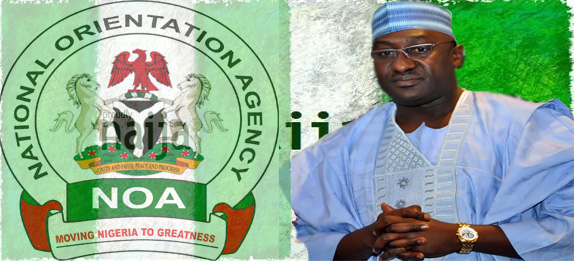 Mr Mike Omeri, the Director-General of National Orientation Agency (NOA), says that the agency is resolute to promote values that will erode corruption and sustain a desirable Nigerian society.
Mr Mike Omeri, the Director-General of National Orientation Agency (NOA), says that the agency is resolute to promote values that will erode corruption and sustain a desirable Nigerian society.
Omeri said this at the procurement, security and anti-corruption enlightenment programme organised by NOA for procurement officers in Ministries, Departments and Agencies (MDA’s) on Wednesday in Abuja.
According to Omeri, corruption is a serious problem that is detrimental to the social, economic and political development of any country.
He said that the acts of corruption, which were all too familiar, had remained with mankind through civilization.
“Corruption is so old in our national discourse that if it were a person, it would, by now, be very old and weak and would no longer be relevant and worth the attention we devote to it.
“Every government since independence has had to mention the word in its maiden speech and prescribe means to deal with it.
“Unfortunately, we have been unable to resolve this problem; the monster is getting stronger and smarter by the day.
“The resultant effects are poor infrastructure, weak institutions and insecurity of lives and properties”, Omeri said.
The NOA boss said it was this concern that necessitated the management’s decision to organise the programme to deliberately target the procurement sector, which had been identified as a major platform through which corruption thrived.
Omeri said that NOA, as an organ of the government, was deliberately collaborating with the Bureau for Public Procurement because it was the umpire of all procurement matters and processes.
“It is evident that corruption is the bane of every society; it threatens the moral, institutional and political fabrics of the society.
“When the patrimony of a state is diverted into personal purses, the uses to which the funds ought to have been put to meet societal needs suffer neglect and consequently, the whole society suffers.
“But corruption in public procurement is not just about money; it includes reduction of quality of services, which can cost lives.
“People in many parts of the country have paid the ultimate price for collapsed buildings and counterfeit medicines.
“The end result is that the citizens’ trust in their leaders is eroded”, he said.
Omeri also suggested other factors that accounted for a credible procurement system which, if applied, could go a long way in reducing some of the sharp practices taking place.
“Credible public procurement systems must be such that allow citizens to hold government, bidders and contractors accountable for their actions.
“The Bureau of Public Procurement must also provide access to information and effective complaint mechanisms, whereby citizens report suspected corruption cases confidentially without threat”.
He said one way to stem corruption and insecurity in society was to ensure rigorous development and implement sustainable public procurement policies at all levels.
Earlier, the Director of Procurement in NOA, Mrs Remi Afolabi, explained that Procurement Officers were made to visit Kuje prisons periodically to deter those who undermined the rules of procurement.
She said the NOA’s mandate included enlightenment, mobilisation, communicating government policies and programmes as well as providing feedback to government about the feelings of the people. (NAN)




